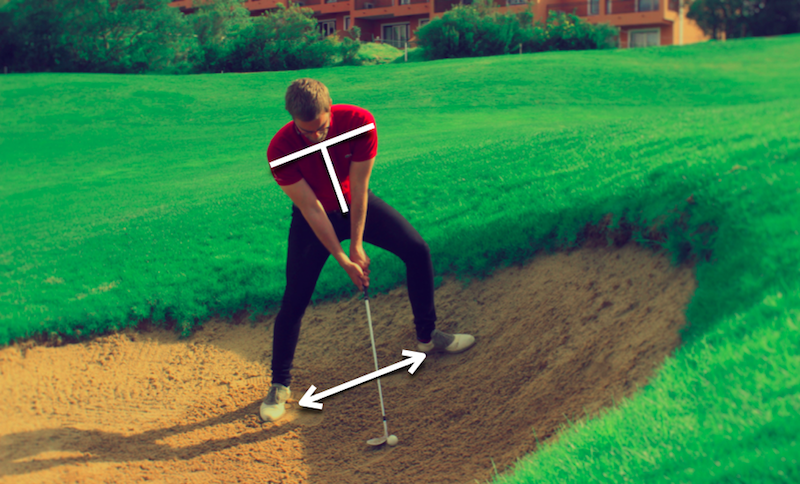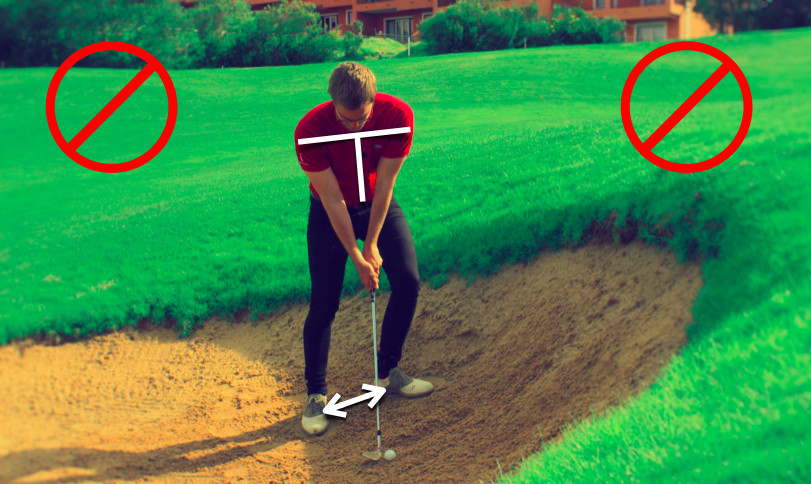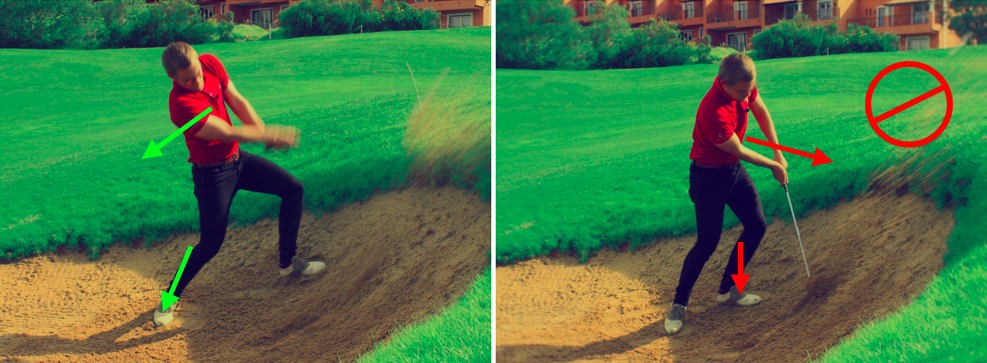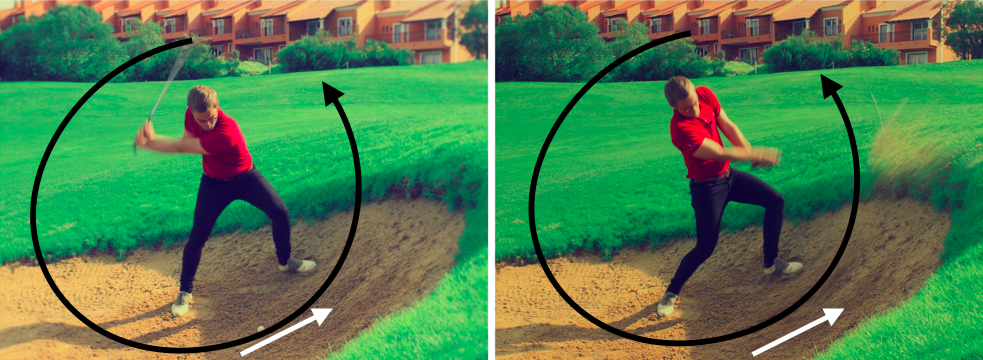- +4527976587
- mail@worldofshortgame.com

3 Easy Steps to Master the Uphill Bunker Shot

3 Easy Steps to Master the Uphill Bunker Shot
3 Easy Steps to Master the Uphill Bunker Shot
Have you ever found yourself in the following scenario: Your ball has come to rest on a steep uphill slope in a greenside bunker. After trying to pull off the shot, you find your ball either on the other side of the green because you bladed the shot, or just in the lip of the bunker because you hit the sand to early. Don’t worry; you are not the only one.
In the following you will learn the 3 key factors for the uphill bunker shot. Pictures will guide you through the factors.
1. Start with the right setup
It may not come as a big surprise, but you need to change the setup for it to match the uphill slope the ball is located at. Here is what you need to do:
Looking to improve your short game? I'm currently offering online lessons through the Skillest app with a 50% discount on your first lesson for all readers of the World of Short Game blog. Simply use the promo code "WOSG50percent" when booking your first session to get started at a discounted rate. Let’s work on your game together! ⛳️
-You need a very wide stance in order to keep your balance.
-Tilt you upper body so your shoulders are more in line with the slope.
-Your weight is going to be a lot on the trail foot (back foot) because of the upper body tilt.
How NOT to setup for a uphill bunker shot:
You’ve just learned the basics of how to setup for an uphill bunker shot. I just quickly want to show you the most common mistakes people make in the setup for this shot:
-Setting up with a very narrow stance.
-Having their spine close to vertical.
-Leaning forward with the weight.
2. Keep the weight were it started
Now that you have placed yourself correctly in the setup, with the weight more on the back foot, it is very important that you KEEP the weight on the back foot. In almost every other shot, that you have to move the weight forward. And that is absolutely correct, just not with this specific shot.
Now you might be thinking:
Did he just said that I should keep my weight on the back foot?! And yes I did. By keeping the weight back, there is a greater chance of your shoulders keeping their tilt with the slope. Just look at the pictures below:
On the left picture you can clearly see how the upper body is tilted with the slope, just as we placed it at setup. On the right picture the weight has moved forward and the upper body is now tilted towards the hill. This will cause the club to smash into the hill and never make it any further than that. The margin for error is 0 when the club is swinging that hard into the sand/slope.
3. Swing along the slope
That was 2 out of 3 key factors when hitting uphill bunker shots. The third key is about how you swing the club. All that matters is that the club, when it hits the ball, must be swinging almost inline with the slope. Look at the picture below:
As you can see, the club is swinging up along the slope when the ball is hit, and this is the whole idea of this shot. By making the setup adjustments we did, and keeping our weight back, we increased the chances of the club swinging along the slope at impact.
Here is what to fell:
Here are a few other swing-feelings to try out to make this happen:
-In the downswing, fell like you are making a “wide”swing. This means swinging the club far away from yourself in the downswing.
-In the follow-through, you should do the opposite than in the downswing. You should make a very narrow swing. This means keeping your hands very close to your body, and maybe add some flexion in both of your arms.
Both of these swing-feelings should make the club head travel more up along the slope at impact.
What NOT to do:
Way to many amateur players does the exact opposite than described above. They move their weight a lot forward in the downswing and they swing “narrow”down to the ball. This will cause the club head to smash into the hill of sand, and never make it any further. The margin for error when doing this is 0.
You need to practice this!
You have now learned the 3 key factors for uphill bunker shots. Unfortunately, it’s not enough only to read about it. The next time you are going to play a round of golf, try and arrive 30 minutes before you normally would do. Take some practice balls, go to the practice bunker, and try out the 3 above described things. Test them out, see how you like them, and find out which of the key factors you think is the most important for YOU! Good luck.
Do you need help with a standart bunker shot?
The above described shot is not the easiest to succeed with. Make sure you have your bunker-fundamentals in line (read the 15 most important bunker shot basics to check if you got it), before you start working on the uphill shot.
If you want to learn how to hit downhill bunkershots, you should read How to Master the Downhill Bunker Shot.
Looking to improve your short game? I'm currently offering online lessons through the Skillest app with a 50% discount on your first lesson for all readers of the World of Short Game blog. Simply use the promo code "WOSG50percent" when booking your first session to get started at a discounted rate. Let’s work on your game together! ⛳️
You must be logged in to post a comment.








